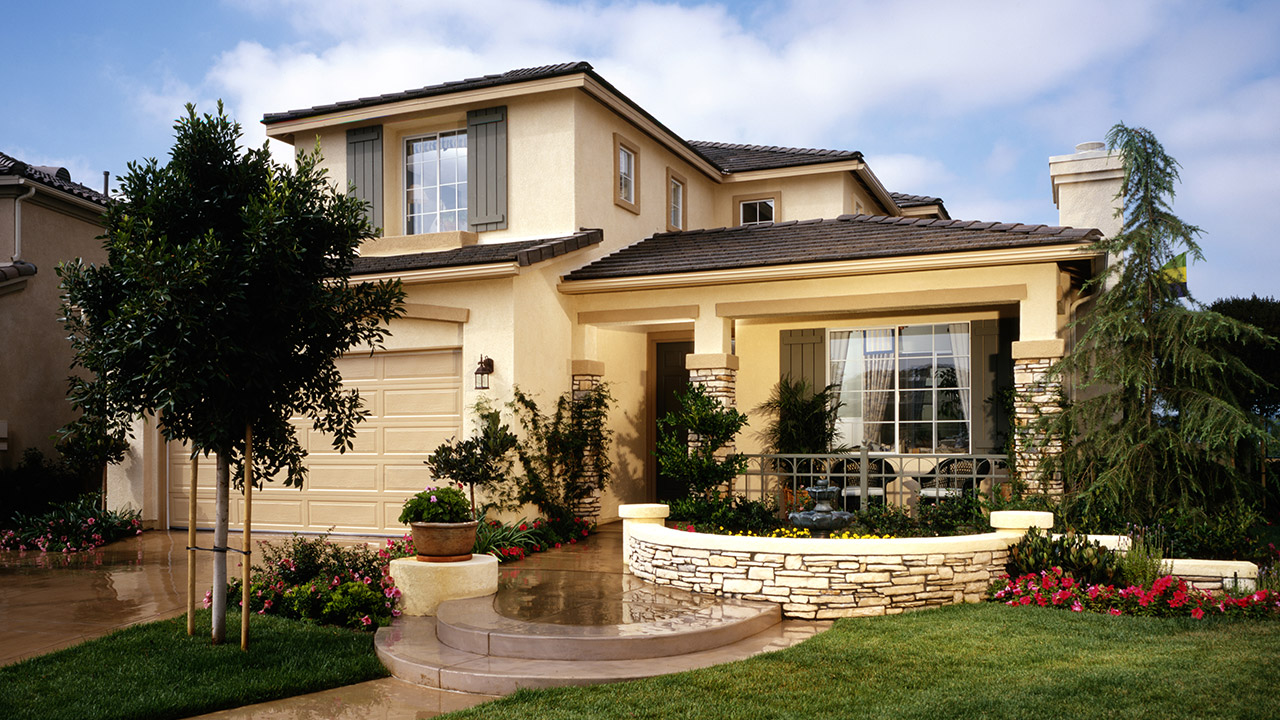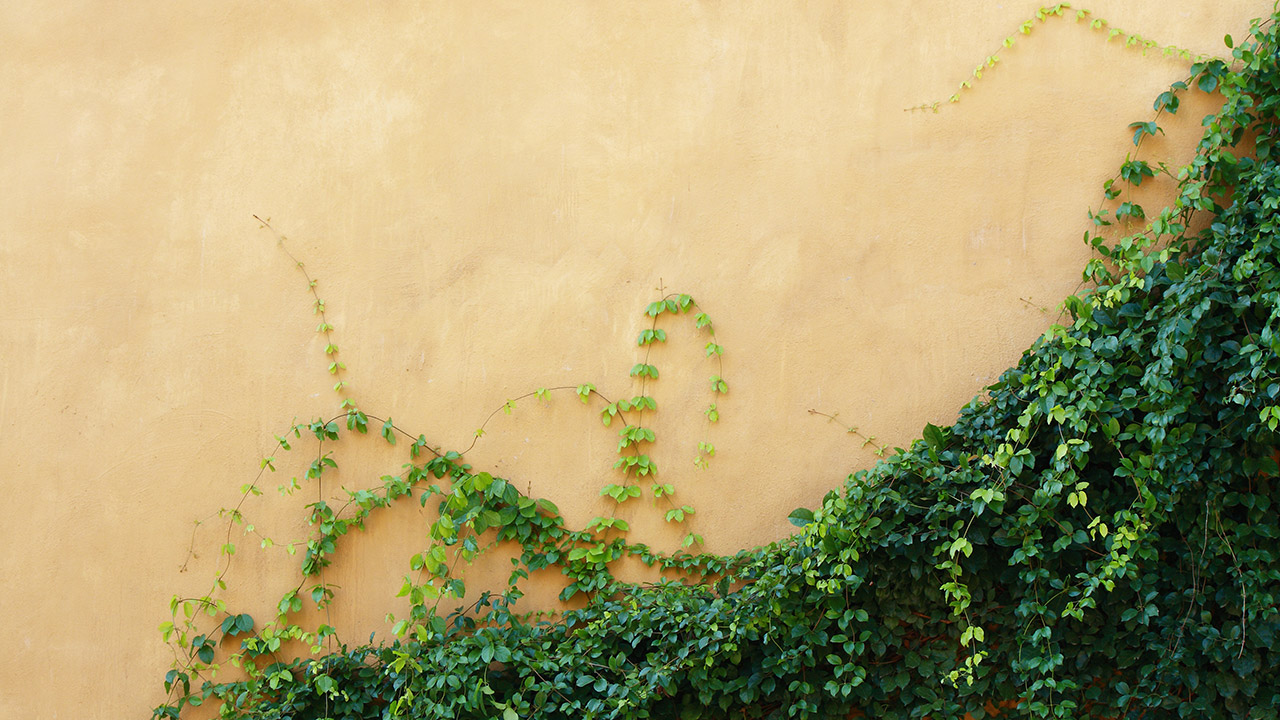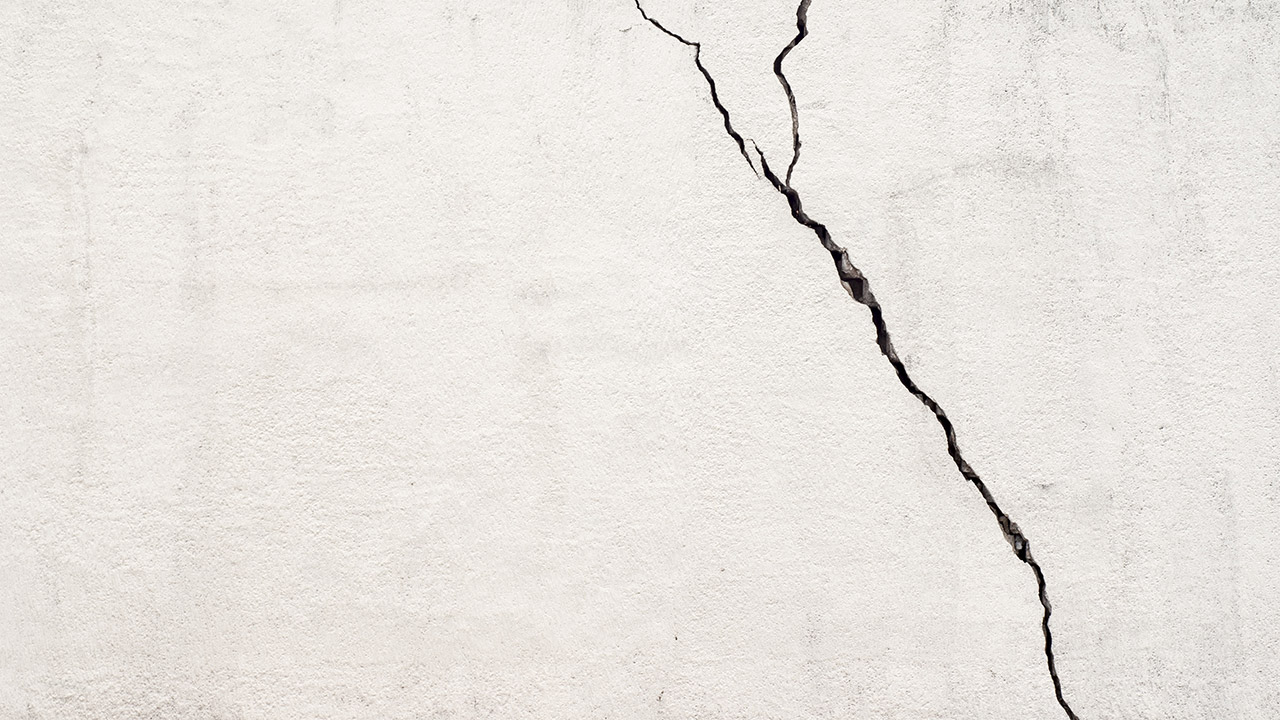
Stucco provides a clean, smooth, modern finish to a home’s exterior, which is why it’s such a popular choice among California homeowners. If you’re considering revamping your home’s exterior, stucco is likely one of your options.
Before you cover your home’s exterior with stucco, be sure to weigh the pros and cons of this material to be certain that it’s right for your home.

Pros
It’s fire-resistant. This is a particularly important advantage in California where wildfires have been ravaging communities and homes over the recent past due to extremely dry climates and minimal precipitation. Stucco can be applied over just about any surface, including wood or brick, and can add at least a one-hour fire rating to an exterior wall. In many situations, it has saved homes from being completely consumed from forest and brush fires.
It requires less energy to cool a home. Thanks to stucco’s mixture of cement, silica, and lime applied in many layers, this essentially creates a concrete shell around a home. For this reason, it requires less energy to keep a home cool during the sizzling temperatures of the summer months.
It’s easy to maintain. How long your stucco lasts and how good it looks will depend on a few things, including how well it has been maintained. The good news is that stucco is rather easy to keep clean and strong. Taking a light pressure washer to the exterior at least once a year will help prevent the accumulation of dirt in its pores. Any hairline cracks can be quickly and easily fixed with a little paint or elastomeric sealant.
It’s long lasting. Stucco can easily last more than 50 years if applied properly, which means you don’t have to worry about fixing or replacing it any time soon after first applying it to the exterior of your home. No matter what weather conditions you happen to experience, stucco can expand and contract with the weather so it won’t sustain damage under inclement weather conditions. It’s also resistant to mold, mildew, and rot.
It’s versatile. You’ve got plenty of options when it comes to the color, texture, and type of application. It can be smooth, course, swirled, raked, or any other texture that your heart desires.
It can reduce sound transmission. If you live in a busy area with lots of vehicle traffic and plenty of neighbors, having the benefit of a reduction in sound is a major benefit.
It can be quickly installed. Despite the fact that many coats need to be applied, stucco can be completely installed in as little as a day. It’s also one of those materials that seemingly never goes out of style.

Cons
It can be expensive. Perhaps one of the biggest disadvantages of stucco is its potentially high up-front price tag compared to other materials, such as vinyl or cement fiber siding. However, despite the big initial investment, stucco will easily pay for itself off down the road because of its long lifespan and simple maintenance.
It can become oversaturated. While stucco is pretty good at repelling moisture in average climates, it’s not always the best option in areas with lots of precipitation. It can only tolerate a certain amount of moisture and expansion, and isn’t as good as vinyl siding or brick at keeping water out of the exterior walls throughout heavy rain periods. Luckily, California has a predominantly dry climate, so this particular issue shouldn’t necessarily be a problem for Golden State residents.
It can be brittle. In areas where there is solid ground that isn’t prone to shifting, stucco can last decades without cracking. However, in earthquake-prone areas, stucco might not be the best option. It can easily develop hairline cracks or worse if the ground tends to shift.
It tends to show dirt stains more than other types of siding materials. This is especially true with a very smooth finish.
Whether you’re looking to buy a new house or are thinking of renovating your existing home, consider these advantages and disadvantages before deciding if stucco is right for you.